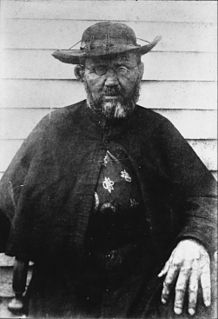A Quote by Saint Francis de Sales
In no other action can our Savior be considered more tender or more loving than in this, in which He, as it were, annihilates Himself and reduces Himself to food, that He may penetrate our souls and unite Himself to the hearts of His faithful.
Related Quotes
How is it that we do not die of love in seeing that God Himself could do no more than shed His divine blood for us drop by drop? When as man He was preparing for death, He made Himself our food in order to give us life. God becomes food, bread for his creatures. Is this not enough to make us die of love?
The Socratic maxim that the recognition of our ignorance is the beginning of wisdom has profound significance for our understanding of society. Most of the advantages of social life, especially in the more advanced forms that we call "civilization" rest on the fact that the individual benefits from more knowledge than he is aware of. It might be said that civilization begins when the individual in the pursuit of his ends can make use of more knowledge than he has himself acquired and when he can transcend the boundaries of his ignorance by profiting from knowledge he does not himself possess.
The person in peak-experiences feels himself, more than other times, to be the responsible, active, creating center of his activities and of his perceptions. He feels more like a prime-mover, more self-determined (rather than caused, determined, helpless, dependent, passive, weak, bossed). He feels himself to be his own boss, fully responsible, fully volitional, with more "free-will" than at other times, master of his fate, an agent.
See that unfortunate soldier who is falling hurt to death ("tombe blessé à...", Fr.) on the battlefield; he learns that his folks have vanquished and dies happy. He detached himself from himself (s'est détacher de lui-même", Fr.), has identified himself with something greater and more lasting than himself; his homeland ("patrie", Fr.); thus, while dying as an individual, he has the certainty to survive in a larger existence.




































